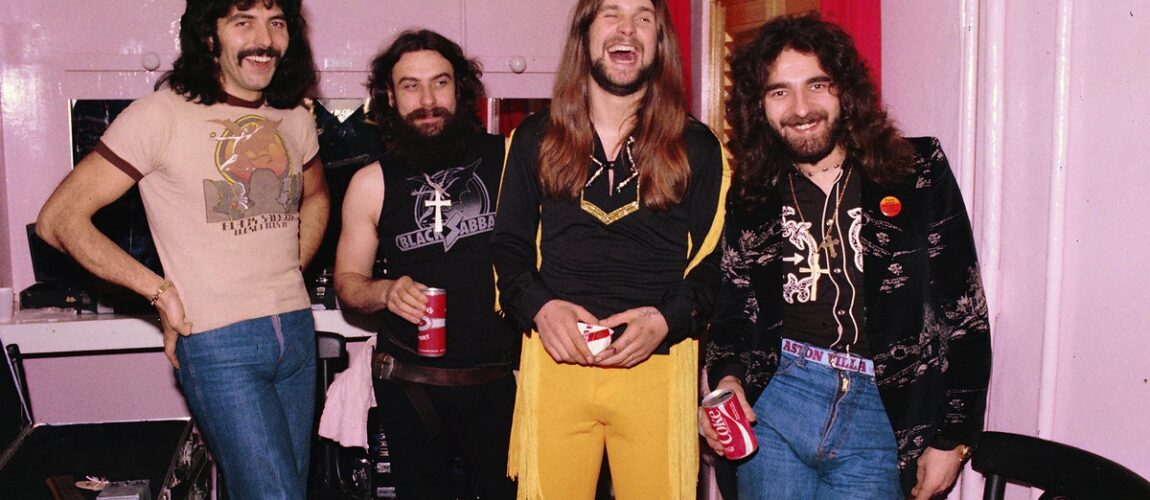Ask most music fans who “invented” heavy metal and they’d likely point you in one direction: Black Sabbath. The group’s self-titled debut album was recorded more than half a century ago, in – according to guitarist Tony Iommi – a single day in 1969. Released the following year (on Friday 13th), it was savaged by critics (Rolling Stone described it as “just like Cream… but worse!”) but has come to be regarded today as one of the most important records of all time. A further 17 albums followed, along with the stories, myths and legends that have made Black Sabbath one of the most revered and influential groups in history.
Now, Black Sabbath and their hell-raising frontman Ozzy Osbourne are playing one last show in their hometown of Birmingham. For the farewell concert, they will be backed by the artists and bands they have inspired over the decades, including Metallica’s Rob Trujillo, Alice in Chains bassist Mike Inez, and rock singer and guitarist Sammy Hagar. Ahead of the gig, The Independent speaks to those three artists, as well as British musician and honorary Osbourne, Yungblud, about what Ozzy and Black Sabbath means to them, the heavy metal community and the world.
Mike Inez – bassist, Alice in Chains (present), Ozzy Osbourne (1989 – 1993)
Mike Inez met Ozzy Osbourne in 1989 while auditioning for his band aged 23; a month later he was playing live with the Prince of Darkness at Wembley Stadium. He went on to join the metal band Alice in Chains, and has also played with bands including Slash’s Snakepit, Heart and Black Label Society.
Hearing Black Sabbath for the first time changed my life. I come from a really musical family, so we had a lot of records around the house, but there was just something different about that first Sabbath record. The opening chords, it was just like, ‘Oh, my God, what’s this all about?’ I was instantly drawn to it. And now they’re such a big part of the tapestry of my life. I can’t even tell you – I’ll be on vacation after a big tour like, ‘No music, I’m having a break.’ But for me, no music means solely listening to Black Sabbath.
It’s nice to be a small slice of the big history of Ozzy’s career, you know? I co-wrote “No More Tears” – it was so funny. The first time I saw Ozzy play in the flesh was in 1983, there was this big festival, the US Festival here in California. I went on the heavy metal day, tickets were 20 bucks and it was Van Halen, Scorpions, Judas Priest, Motley Crue and Ozzy. Seeing Ozzy, I had this epiphany – I was already playing guitar at that point, I think I was a junior in high school – but when I went to that concert and saw Ozzy, it was like this light bulb went off and I realised I was on the wrong side of the f***ing PA – I needed to be on the stage!
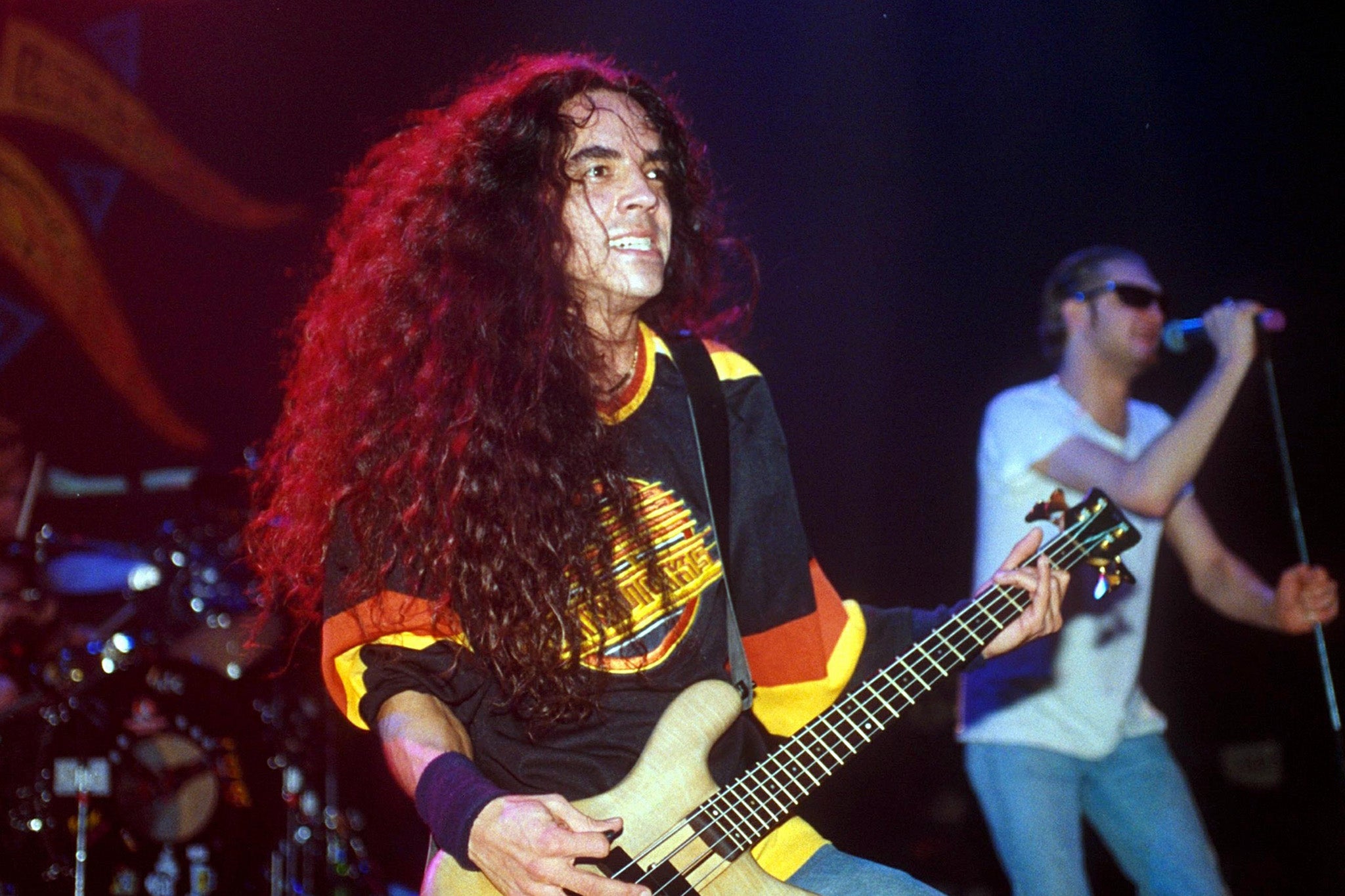
So how do I manifest that? What’s that going to take? Well, you just dive in – seven years later, I’m in the Ozzy band. It’s amazing that he was the one who made me realise I had to figure this out and literally, seven years later, I’m flying to Ireland and living in County Wicklow with them, doing rehearsals to play McGonagles. We did the two shows, then the Marquee club [in London], then Wembley. That’s how it all started for me, living in a house with Ozzy and the band.
My first impression of him, well… First of all, you’re starstruck. It’s just like, holy s***! This is the guy I’d been watching in videos and staring at his album covers my whole life, and suddenly there he is. The audition process was crazy – it was at Joe’s Garage, Frank Zappa’s place in Los Angeles. It was all surreal to me. I remember showing up – I was wearing a ratty LA Kings hockey jersey and jeans, and everyone else in there was in leather. So in my head I was thinking, “OK, I’m never getting this f***ing gig, so I’m just gonna have a good time with it, and be able to say I got to play ‘Crazy Train’ with Ozzy one time.” Little did I know I was going to get it, and then my whole life trajectory was going to change.
I owe everything to Ozzy Osbourne. Ozzy and Sharon [Osbourne, the Sabbath frontman’s wife and manager] changed my life – I didn’t have decent bass gear before then, I didn’t have health insurance, I didn’t have a passport. I wouldn’t have met Alice in Chains or anybody else I jam with. It all goes back to Ozzy, all the way back to the beginning. He’s like a father figure, or an older brother. One thing I do remember is just that we laughed – that’s my one solid thread of all the memories of every gig, every album. We were always laughing, because it’s impossible not to laugh in a room when you got Zakk Wylde and Ozzy Osbourne in there just cracking jokes.
Black Sabbath basically created heavy metal. There were a couple of other bands around – but with Sabbath it was the image of it, and there’s something about Birmingham, right? There’s something in the water there – it reminds me of Pittsburgh here in the States, a working-class town of hard-working people, so there wasn’t any pretentiousness. And there’s something to be said about their chemistry, too: the way Bill Ward played drums is completely different to how a modern metal drummer would play now. Ozzy’s voice is just so good – no one will ever sound like him, and I’ve never seen a crowd respond to one man like they do with him. Seeing the four original guys up there on that stage, man, I’m gonna cry like a baby!
Sammy Hagar – solo artist, singer and guitarist (Montrose, 1973 – 1975, Van Halen, 1985 – 1996, and 2003 – 2005)
Sammy Hagar rose to fame as the lead singer of the hard rock band Montrose before embarking on a solo career, then joining Van Halen as their lead vocalist between 1985 to 1996. He rejoined the group from 2003 to 2005, and was inducted into the Rock and Roll Hall of Fame as a member of Van Halen in 2007.
I’ll admit, I’m kinda nervous about this show. I’m walking out in front of 80,000 of someone else’s fans, and Ozzy Osbourne! His songs are really difficult to sing, too – a lot of people don’t realise he’s a really unique singer. His melodies, his phrasing… trying to sing his songs without straight-up mimicking him, it’s tough. But I’m honoured to have been asked to do it.
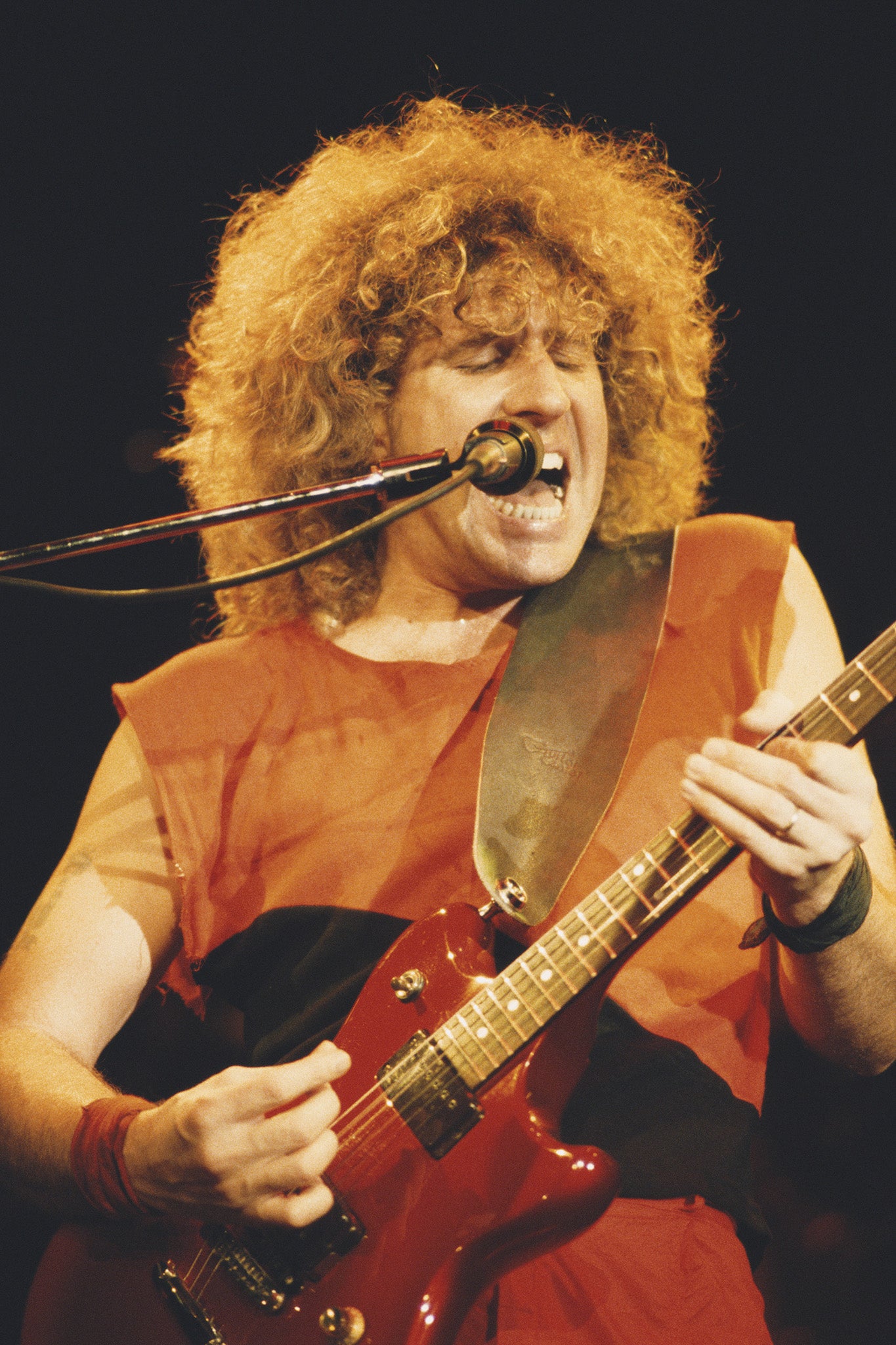
I remember the first time I heard Black Sabbath: I was in Montrose, and the first song that really got me was “Iron Man”. It was so heavy. All of us were influenced by Black Sabbath, man, and then the stuff Ozzy did on his own. What a legacy. Later on in my life, me and the Van Halen guys would be sitting there listening to “Flying High Again” and going, “S***, these are good. We’d better step on the gas a little bit.” Because for Ozzy to transition from what Sabbath were doing into his solo sound, that super melodic stuff… As I said, they’ve influenced everyone in the business. Pat Monahan in Train is a dear friend, and shoot, you get him on stage for a jam at someone’s birthday and he’ll be right up there playing a Sabbath or an Ozzy tune. It’s a wide net that Ozzy cast.
I saw him recently [when he was inducted into the Rock and Roll Hall of Fame]. I was inducting Foreigner, and then Ozzy was on right afterwards. It was so awesome that he showed up, he’s a real rocker man, a lifer. He’s got tenacity. I love him to death.
Rob Trujillo – bassist, Metallica
Rob Trujillo rose to prominence as the bassist for the California thrash band Suicidal Tendencies – as well as their side project, Infectious Grooves – before successfully auditioning for Osbourne’s band in the late Nineties. He joined Metallica in 2003, and was inducted into the Rock and Roll Hall of Fame with the band – including the late Cliff Burton and former bassist Jason Newsted – in 2009.
When I was younger, I had a really great friend who had older brothers who were obsessed with Black Sabbath. Back then it was all about the record player and vinyls, so we would sit there and play the first album, and listen to the song “Black Sabbath”, and actually really scare ourselves with it. We’d imagine what they were like, because coming from southern California… to us they were like sorcerers or something. We were afraid of them, but we also looked up to them as heroes, and there was a weird, creative energy that went along with the actual experience of hearing their music.
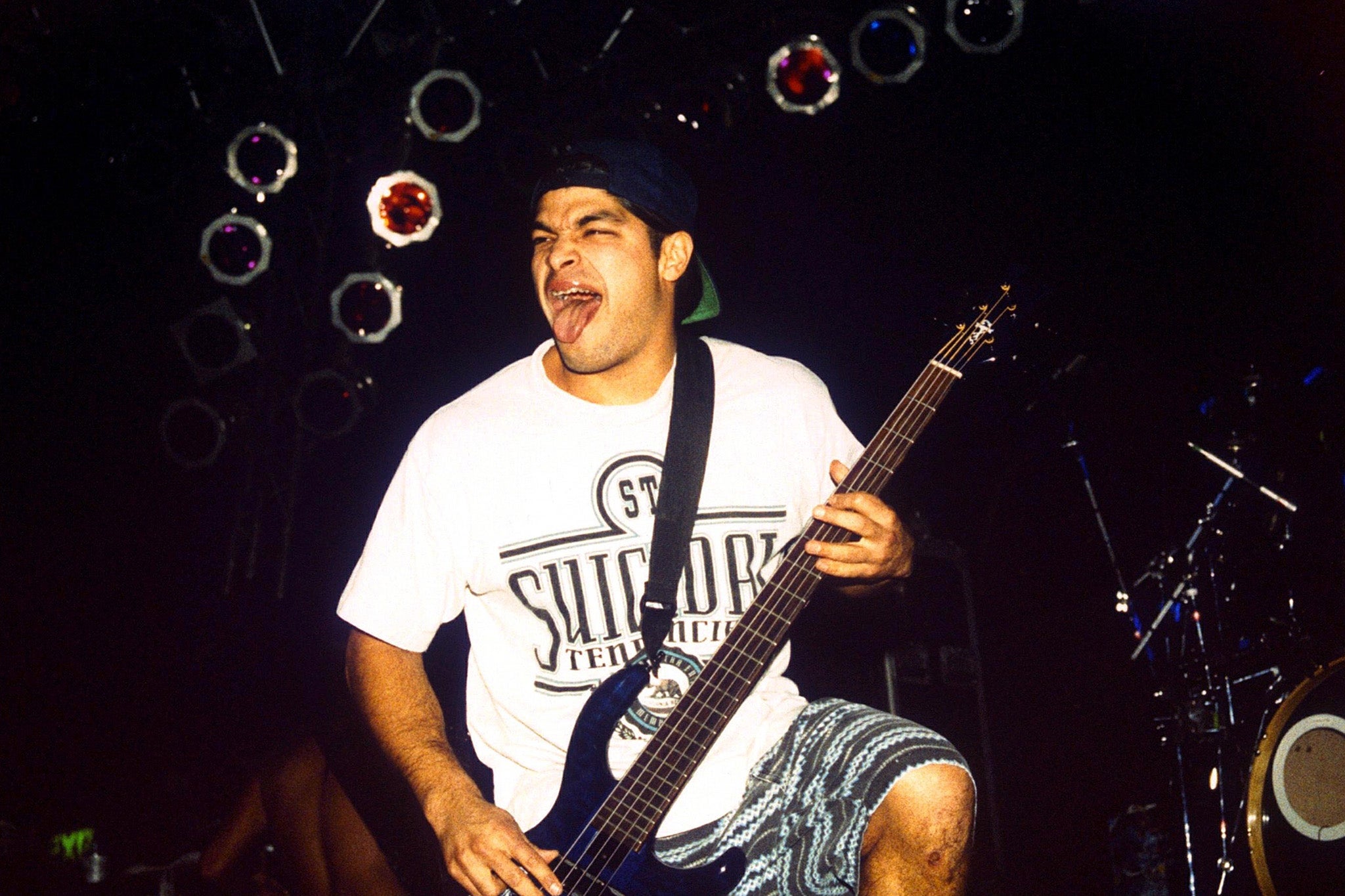
Then, in high school, a friend turned me on to them as a musician and I started learning their songs, working out why Geezer Butler was so great. So I started covering Sabbath songs when I was around 16, 17, and Ozzy’s solo stuff as well.
I was recording the first Infectious Grooves album around the time Ozzy was doing No More Tears – we were both at a studio called Devonshire Studios in LA, it was a compound and so we were all there together like one big happy family. And Ozzy, back then he was kind of wild and he would go missing, and he’d end up in our studio hanging out with us in the control room, so we featured him on a song called “Therapy” – he loved it. And later on when the band were gearing up to do their Theatre of Madness tour, he insisted Infectious Grooves open for him. We weren’t even a physical band then, so he helped that happen. And we had a great time! Opening for Ozzy was a dream come true; I even remember the Metallica guys coming to see us, I think in Atlanta.
Being asked to join [Ozzy’s band] was crazy. I’d been thinking about Ozzy – it’d been two or three years since the tour with Infectious Grooves – and I was missing albums like Diary of a Madman, so I got the CD and put the outgoing message on my answering machine. Then out of nowhere I got a call from Sharon’s office about auditioning, and they were blown away because the first thing they heard was the intro to “Over the Mountain”!
Obviously I went to the audition. It was a bit of a cattle call, I remember – there were a lot of great players there. But you go in, you have fun, you play. And if you don’t get the gig, at least you get to say you jammed with Ozzy, right? I had the same attitude when I auditioned for Metallica: “I got to play three songs with my heroes.” I’ve stayed friendly with Ozzy since then and played in the band for his induction into the Rock and Roll Hall of Fame. And I’m so excited to be part of this, to be able to show my love and respect for Black Sabbath – because it’s safe to say a lot of us wouldn’t be playing the music that we play if it wasn’t for that band. To be sharing this stage with Ozzy, thinking back to the days when I played backyard parties and barbecues, and to still be friends with them, it’s a blessing. This is a huge, historical, monumental experience that we’re going to have on this day in Birmingham.
Yungblud, solo artist
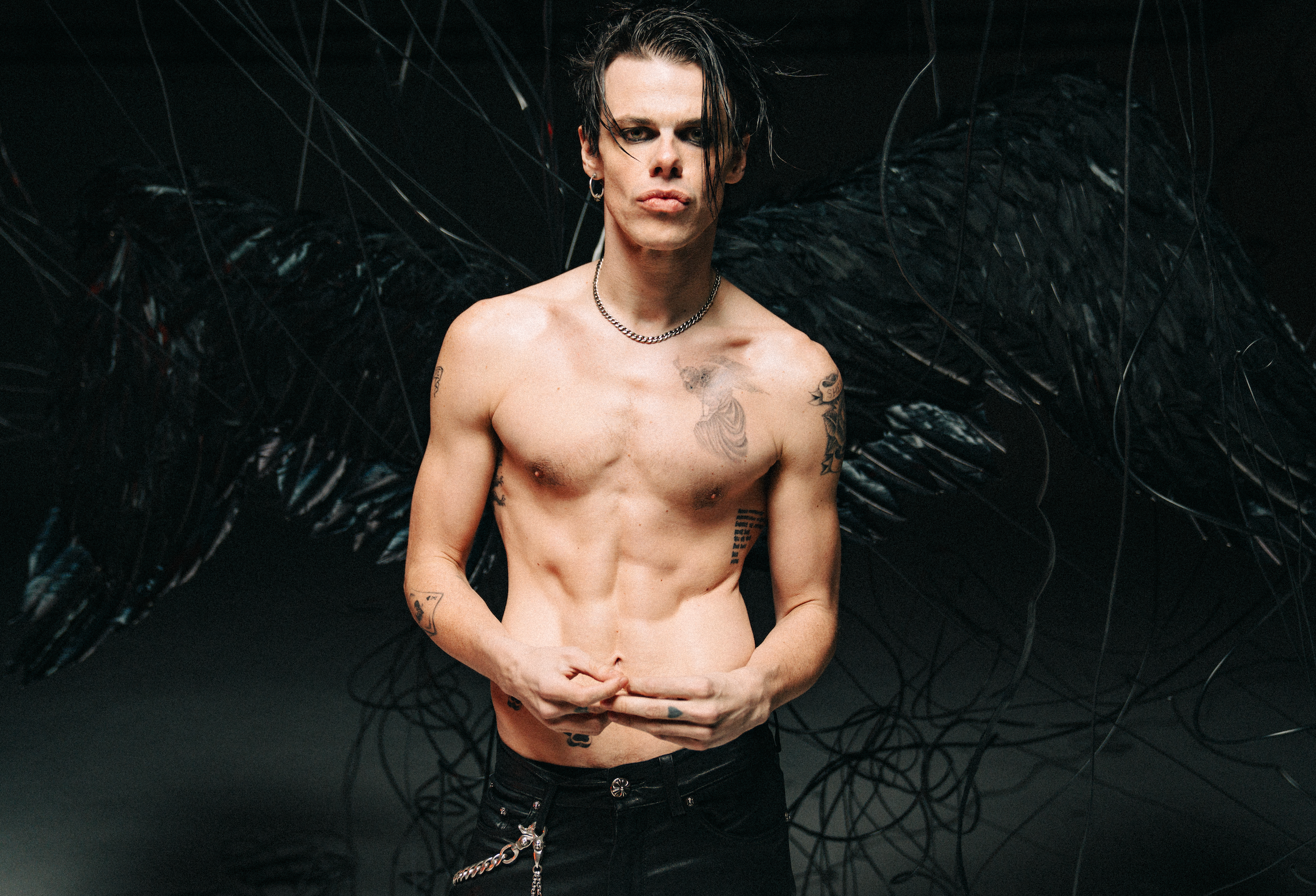
Born in Doncaster, Yungblud – Dominic Richard Harrison – rose to fame with the release of his debut album, 21st Century Liability. He has since released a further three albums, all of which have topped the UK charts, including his 2025 record Idols. Ozzy and Sharon Osbourne made a cameo in his 2022 music video for “The Funeral”.
Since I can remember, Ozzy has always been a part of my life. I grew up around rock music, and he was a character to me before I even knew anything about him. I remember his hair, I remember his massive mouth, I remember his glasses from when I was three years old.
If you know me and my family, we’re truly f***ing loud– they used to call us The Osbournes. So, I kind of found solace in being similar to them. Growing up watching The Osbournes and the madness, I was always like that. I was always out there and “crazy”. To see someone being so loved and accepted with all their madness… I really found solace in a figure like Ozzy.
We’re very similar. Even though we don’t necessarily make the same kind of music, we kind of represent the same thing. Being out there and thinking outside the box is what we’re both known for.
To now be a close personal friend to them all – basically family – it’s been amazing. Sharon has been so helpful to me in terms of my festival and my business, and Ozzy has been an inspiration. It’s wild when you meet your heroes, let alone become their family.
The Black Sabbath: Back to the Beginning event takes place at Villa Park, Birmingham, on Saturday 5 July

